“We Have an Industry to Protect”
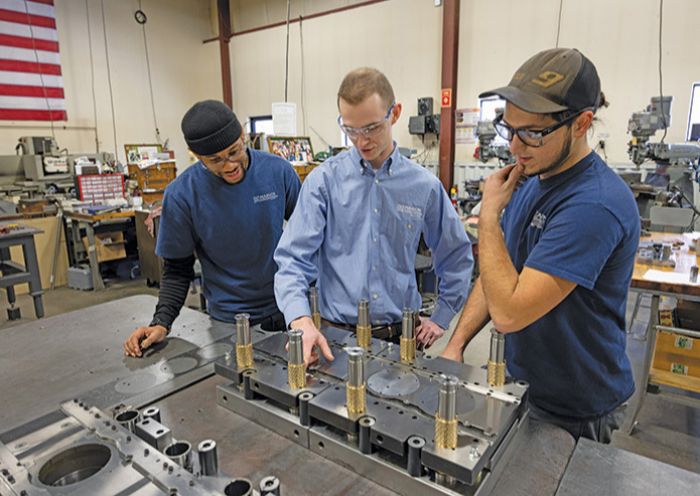 Just as he accepted the challenge from his potential customer, Johnson now takes head-on the challenges and opportunities facing PMA and the metal forming industry in the coming years. Tops among them:
Just as he accepted the challenge from his potential customer, Johnson now takes head-on the challenges and opportunities facing PMA and the metal forming industry in the coming years. Tops among them:
“We have an industry to protect, especially in the wake of the pandemic,” Johnson says. “We must protect the companies under the PMA umbrella, and the industry as a whole. We’re doing so via multiple avenues, most notably through workforce development and advocacy. The PMA advocacy team, under its One Voice partnership with the National Tooling and Manufacturing Association, has really stepped up these last couple of years, exceeding expectations in terms of dedicating their time and efforts to help members navigate the pandemic. I know that for me personally, their support, timely knowledge and advice has helped me sleep at night.”
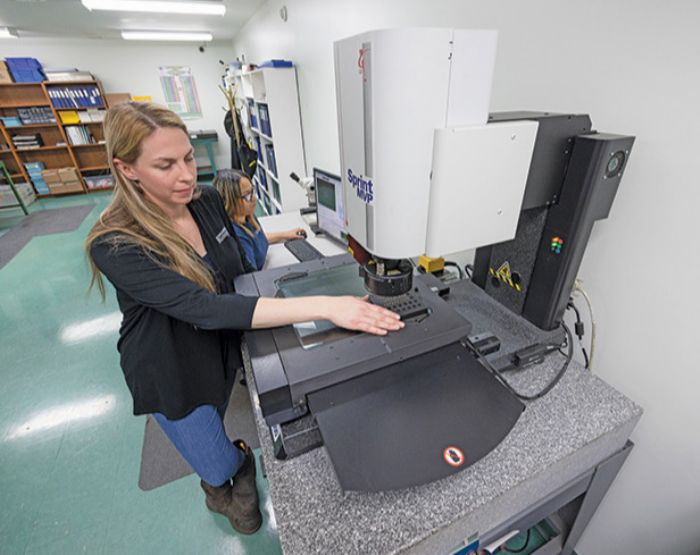 (See the accompanying sidebar, A Laundry List of Critical Issues Being Addressed in Washington, D.C., for a glimpse at where the One Voice team will focus its efforts in the coming months.)
(See the accompanying sidebar, A Laundry List of Critical Issues Being Addressed in Washington, D.C., for a glimpse at where the One Voice team will focus its efforts in the coming months.)
On the workforce-development front, PMA has been very active in recent years bringing its METALFORM EDU online training package—launched in 2018—to metal forming companies large and small. Says PMA president David Klotz:
“Doug has been vice chair on the PMA executive team for the last 2 years and has played a big role in what we’ve accomplished as an organization, including our efforts to expand the rollout of METALFORM EDU training. Our annual meeting of members, the Forming our Future Leadership Conference (February 13-16, in Key Largo, FL), sold out. And, we just completed a significant renovation to our headquarters facility in Cleveland, OH, that includes the latest A/V technology for meetings, including virtual meetings that will complement what we offer with METALFORM EDU.
|
In Washington, D.C., advocates such as PMA have elevated to the highest levels of government the workforce challenges that manufacturers face. In a January 2022 survey, 97 percent of member companies responded that they have job openings, compared with pre-pandemic levels of 86 percent. Nearly two-thirds of respondents face “severe challenges” recruiting employees, the highest level ever recorded, and policymakers are taking notice. “Last year, Congress passed into law $185 million to expand registered apprenticeships, $45 million for training programs at community colleges, and changed the law to make middle schools eligible for career and technical education Perkins funding,” says Omar Nashashibi, a founding partner at The Franklin Partnership, a key player on PMA’s One Voice advocacy team. “This last area is a real gamechanger for manufacturers who for years have said that educators should introduce students to manufacturing careers at an earlier age. PMA is poised to build on those 2021 successes with major policy changes expected in 2022 on competency-based credentials and expanding youth Work Based Learning opportunities and apprenticeships.” The disruption to businesses from lack of workers is significant and nearly matched at times by uncertainty over the supply chains and availability of metals and other raw materials. The January 2022 survey revealed that 90 percent of companies face raw-material shipment delays today compared to pre-COVID deliveries, with more than a third of respondents having to wait at least 30 days longer than they used to. “Long a leader in Washington, D.C., speaking for users of steel, aluminum and red metals, PMA recently held meetings with the Department of Commerce, National Economic Council and U.S. Trade Representative,” Nashashibi adds. “PMA successfully lobbied to provide relief from the tariffs on European Union steel of 25 percent, and 10 percent on aluminum. Effective January 1, 2022, the United States lifted the tariffs, replacing them with a negotiated quota system. To help alleviate other supply-chain disruptions, PMA worked with Congress on bipartisan legislation now moving to invest in semiconductors, advanced manufacturing, and a U.S. innovation and industrial strategy to address China’s rise.” |
“Since we introduced METALFORM EDU, we’ve helped train thousands of metal forming professionals around the country,” Klotz continues. “And, it’s driving new member companies to join. In 2020 we changed learning-management systems for the program, to improve the user experience. Now, thanks to funding from the PMA Educational Foundation, we’re looking to add several new courses to the program during the next 18 to 24 months.”
(See the accompanying sidebar, Coming Soon from PMA: A Bevy of New Educational Content.)
“At Marion Mfg., we used METALFORM EDU heavily in 2020,” says Johnson. “We purchased software licenses for every employee. The star performers here really want to learn, so we want to provide them with those opportunities to grow and take on more responsibilities. Many of the METALFORM EDU courses have become part of our onboarding process, and we even purchased two Chrome books so that people can learn at home.
“If you have downtime, we expect you to log into a class, not just look to kill time with menial tasks,” Johnson adds.
Other PMA Avenues
…explored frequently by Johnson and the rest of his team at Marion Mfg. include its bevy of industry surveys, such as the Monthly Business Conditions Report, quarterly Metalforming Insights reports (separated into four key areas—financials and KPIs, operations and HR, sales and marketing, and wages and benefits) and quarterly economic reports from ITR Economics. Marion Mfg. also actively participates in PMA offerings that include:
- Regional and national seminars and conferences, and online seminars;
- Its partnership with ADP to support payroll and HR activities;
- Discounts on MRO products via PMA’s relationship with Grainger and Office Depot;
- Access to members-only online forums specifically devoted to HR professionals, CFOs, safety professionals, and sales and marketing; and
- Last but not least, its executive networking groups.
“The networking group that I participate in,” shares Johnson, “functions almost like a board of directors. I don’t make a big decision here at Marion Mfg. without first talking to some of those in the group. For example, we recently invested in a new automated vision-measurement system, and I was able to use the networking group as a sounding board as we evaluated the different machine models and suppliers.
“We also tour each other’s facilities,” Johnson continues, “and spend a considerable amount of time discussing what they’re doing well, and opportunities that we see for improvement. I always come away with ideas that we can implement here at Marion Mfg.”
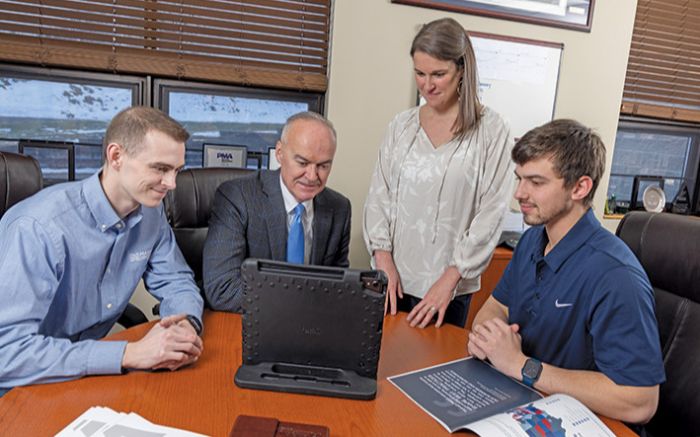 Several years ago, PMA managed just two such networking groups; now it manages five. “We think we can add as many as five more in the next few years, each with 15 to 20 members,” says Klotz.
Several years ago, PMA managed just two such networking groups; now it manages five. “We think we can add as many as five more in the next few years, each with 15 to 20 members,” says Klotz.
Driving Membership, Growing the Community
Using METALFORM EDU to promote workforce development and help drive membership in PMA has helped grow the community that Johnson so eloquently discusses as he takes the PMA helm. It’s all about strength in numbers, and numbers are trending in the right direction. PMA has added 300 new member companies in the last 2 yr., so Johnson and Klotz now seek to use that larger, stronger community to help regain momentum that the industry lost during the pandemic.
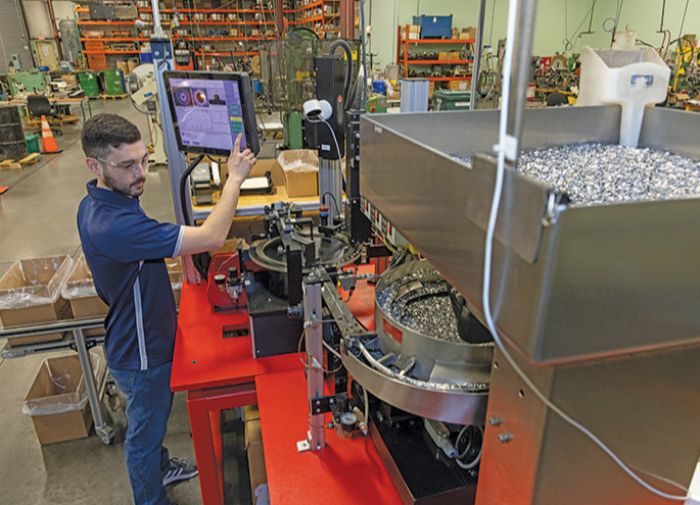 “What can we do to help regain lost momentum?” asks Johnson. “Number one, we can use our influence in Washington, D.C., and our advocacy team to help shape a recovery plan focused on fighting bad legislation and supporting good legislation. We need to rally our membership to lobby, locally and nationally.
“What can we do to help regain lost momentum?” asks Johnson. “Number one, we can use our influence in Washington, D.C., and our advocacy team to help shape a recovery plan focused on fighting bad legislation and supporting good legislation. We need to rally our membership to lobby, locally and nationally.
“To help step up our advocacy efforts, PMA will work to strengthen its communication with members,” Johnson continues, “to circle the wagons with our members, refocus and re-engage the metal forming community so that we’re all riding in the same direction. We’re going to build a community that other companies want to join.”
Yet another opportunity to build momentum for metal formers, says Johnson: the rising trend toward reshoring. Reshoring of U.S. manufacturing surged to a record high in 2021, according to the Reshoring Initiative (of which PMA is a Silver Sponsor). For the second year in a row, reshoring job announcements outpaced those from foreign direct investment. And, with the pandemic causing shipping bottlenecks, reshoring can help ensure faster time to market and more timely deliveries.
|
“We were silver-plating plastic parts used in electrocardiogram (ECG) equipment,” Johnson recalls. “The business really took off and quickly the owner (his friend) took the company public, and then left the company. That marked a turning point for me personally, as the new CEO came in and took me under his wing. He asked me what my goals were, and I said, ‘I want your job.’ From that point on he mentored me and made me the leader that I am today.” Johnson eventually managed nearly every department in the company, including sales and marketing, and was challenged to grow its global customer base. After 4 yr. of personal and professional growth, and the support of the company CEO and Johnson’s mentor, Johnson enrolled in and eventually graduated from the Worcester Polytechnic Institute School of Industrial Management. Thereafter he was named vice president and COO at the company, and eventually reached his goal of becoming company president, replacing his retiring mentor. “I was 35 yr. old,” he recalls, “and we had grown to 80 employees and $40 million in annual sales. However, by that time we had been acquired and I disagreed with some of the decisions being made by the parent company. My dad always told me, ‘Life’s too short to work in a job that you don’t love,’ so I felt the need to move on. Soon after I resigned, a customer of ours, a metal stamper here in Cheshire, CT, which stamped a mating part to the ECG part that we made, hired me to help launch a new medical-device business unit.” While running that new business, Johnson saw an opportunity to improve the company’s stamping business, and eventually took on those added responsibilities. “Eventually our stamping business expanded beyond what we could manage inhouse, so we needed a stamping company to make parts for us,” Johnson explains, “and that led us to a local stamper in Cheshire—Marion Mfg. In 2010 the stamping company was sold off and I found myself unemployed. Fortunately, the owners of Marion Mfg. recruited me to take over their operations, which I did with one caveat: If I was able to improve their operations and profitability, I wanted to have a chance to buy the company. Well, the rest is history, and I acquired the company in 2015.” Since that time Johnson has nearly completely overhauled the firm, including the addition of many relatively young but smart and hard-working mid-level managers. That lineup includes quality assurance manager Katie Barry, production manager Sal Rubano, marketing director Ashley Wells (Johnson’s daughter) and plant manager Tyler Johnson (Doug’s son). “My mentor believed in taking care of the people that worked for him and strived to develop them to prepare them to achieve the next level, myself included. I try to do the same with the people that work for me. I can’t move if they don’t move.” Barry, as with many at Marion Mfg., is a good example of this philosophy, Johnson says. “She came here as an operator, and I saw something in her and put her in charge of our shipping department. She had it running so efficiently that she had extra time to work in another department as well, and I also would find her helping out in our quality department when she had the time. So, when our quality manager left, I offered her the opportunity to move into that role, and she proved quickly that she was ready for that responsibility. Our customers immediately praised her attention to detail and great communication skills. “I ask our team to hustle,” Johnson adds. “And, we want them involved with new customers and projects from the beginning, working with the engineering team. We can offer a lot of advice on design for manufacturability and on material selection, based not only on product performance but also on material availability and price.” |
“How can we as an association help ensure that our members are ready to support OEMs as they look to reshore production?” Johnson asks. “How can we get members more prepared to take advantage of reshoring opportunities?
“PMA must focus its efforts on returning the industry back to pre-pandemic growth levels,” Johnson continues. “We will do this via our strong advocacy efforts, and improved communication to membership. We will continue to push the message that manufacturing provides great career opportunities to our young people. If you ask the young people working at Marion Mfg., they will tell you that manufacturing is cool, and rewarding. We make it that way, and other company leaders must do the same.
“We have an industry to protect, and we need to call on all of our resources to recover from the pandemic and regain momentum.” MF
View Glossary of Metalforming Terms
Technologies: Management, Quality Control






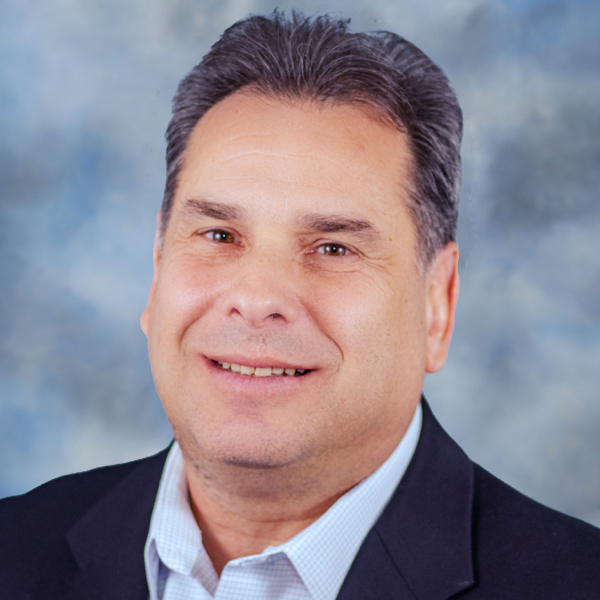
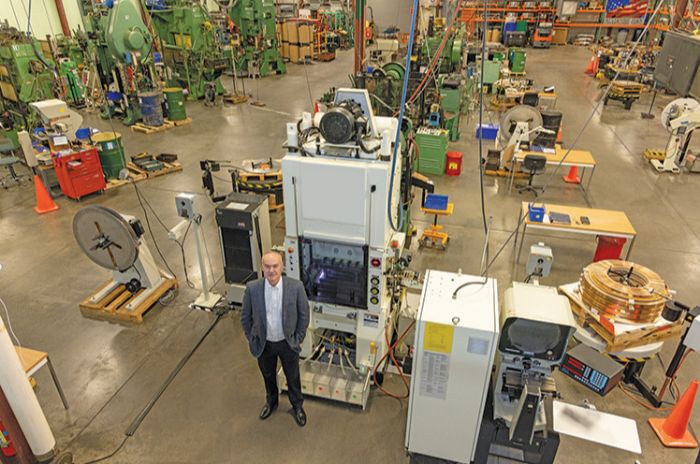 Now, 2022 brings new hope and promise to the metal forming industry, and with that PMA welcomes a new BOD chair: Doug Johnson, owner and president of metal former Marion Mfg., Cheshire, CT. When we met with Turnbull as he took his seat at the head of the table two years ago, he had this to say:
Now, 2022 brings new hope and promise to the metal forming industry, and with that PMA welcomes a new BOD chair: Doug Johnson, owner and president of metal former Marion Mfg., Cheshire, CT. When we met with Turnbull as he took his seat at the head of the table two years ago, he had this to say: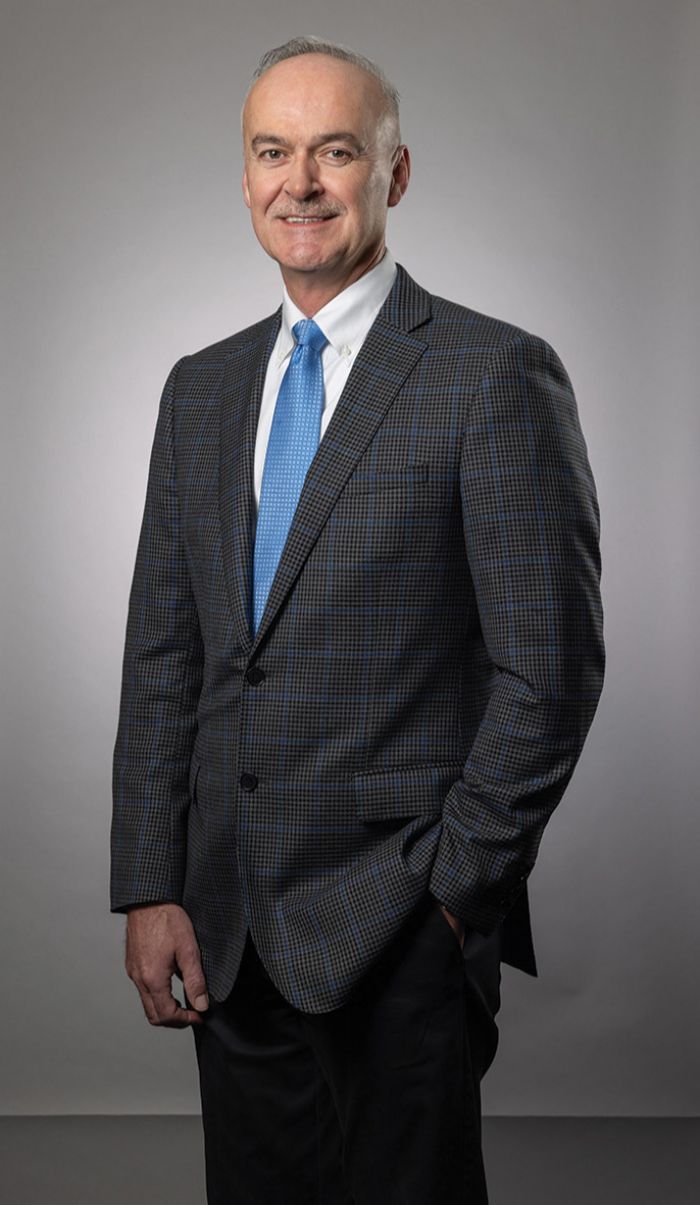 While Doug Johnson spent his teen years toiling in a North Carolina textile mill, he knew that greater opportunities lay ahead. Convinced that there had to be a better work environment than the mills, especially during the hot Carolina summers, in 1986 while in his early 20s Johnson moved to just outside Boston, MA, to join a friend’s startup metal-plating company.
While Doug Johnson spent his teen years toiling in a North Carolina textile mill, he knew that greater opportunities lay ahead. Convinced that there had to be a better work environment than the mills, especially during the hot Carolina summers, in 1986 while in his early 20s Johnson moved to just outside Boston, MA, to join a friend’s startup metal-plating company. 
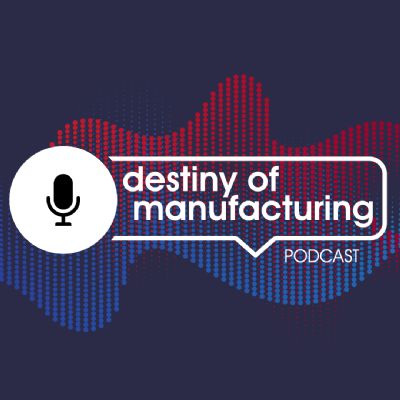
 Podcast
Podcast